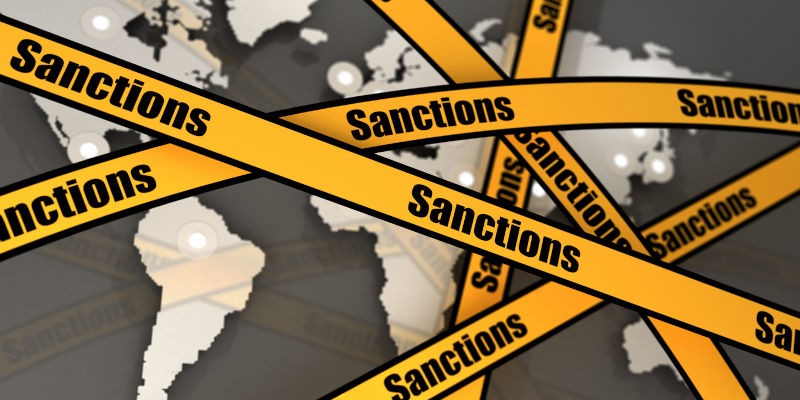Sanctions: Sanitised, silent killing
October 4, 2025
Many will remember the terrible effects of the crippling UN sanctions applied against Iraq, from the time of its invasion of Kuwait in 1990, to the fall of the government of Saddam Hussein, following the loss of the second Iraq war (2003).
The health system collapsed, with the results splashed across our TV scenes, as doctors, especially paediatricians, found themselves helpless, lacking necessary medicines and supplies, such as parts for incubators, to tend to those under their care.
Currently, UN sanctions have again been applied against Iran, due to “non-adherence” to conditions regarding the nation’s alleged development of nuclear weaponry, while Russia is subject to Western sanctions due to its military incursion into Ukraine. Meanwhile, while many speak of sanctions against Israel, a nation known to actually possess illicit nuclear weapons, its illegal actions (as found by international tribunals) in Gaza and the West Bank, have seen very few sanctions applied.
In light of such clear double standards, it is opportune that a major report detailing the effects of sanctions has been recently published.
Of the effects of sanctions the paper, “Effects of international sanctions on age-specific mortality: a cross-national panel data analysis”, concludes, “unilateral economic sanctions applied by the US cause a terrible effect on the populations of countries against which they are applied, while those of the UN, having apparently learned from the mistakes of their Iraq sanctions, are far less destructive of the civil societies of those against whom they are directed”.
To arrive at that conclusion, the authors, Prof Francisco Rodríguez, Silvio Rendón and Mark Weisbrot, analysed the effect on health of sanctions using a panel dataset of age-specific mortality rates and sanctions episodes for 152 countries between 1971 and 2021.
Their findings show the effects of sanctions as frightening, causing severe effects, mainly against civilians.
“Unilateral sanctions were associated with an annual toll of 564,258 deaths. That number was equivalent to 3·6% (2·3-4·8) of total deaths observed in sanctioned countries. This estimate is higher than the average annual number of battle-related casualties during this period (106,000 deaths per year) and similar to some estimates of the total death toll of wars including civilian casualties (around half a million deaths per year).
“Sanctions have substantial adverse effects on public health, with a death toll similar to that of wars. Our findings underscore the need to rethink sanctions as a foreign-policy tool, highlighting the importance of exercising restraint in their use and seriously considering efforts to reform their design.
“The use of economic sanctions,” they note, “has grown substantially in recent decades. According to calculations made using the Global Sanctions Database, 25% of all countries were subject to some type of sanctions by either the US, the EU, or the UN in the 2010-22 period, by contrast with an average of only 8% in the 1960s.
“The fraction of the world’s economy subject to unilateral sanctions, for example, has grown from 5·4% in the 1960s to 24·7% in the 2010-22 period.”
They found a clear difference between the effect of unilateral, particularly US sanctions, and those applied by the UN, concluding, “although unilateral and economic sanctions are positively associated with increases in mortality, UN sanctions are not. Most — although not all — UN sanctions regimes in recent decades have been framed as efforts to minimise their impact on civilian populations”.
“US sanctions, in contrast, often aim to create conditions conducive to regime change or shifts in political behaviour, with the deterioration of living conditions in target countries in some cases being acknowledged by policymakers as part of the intended mechanism through which objectives are to be attained. The US — and, to a lesser extent, Europe — also has important mechanisms at its disposal that serve to amplify the economic and human effects of sanctions, including those linked to the widespread use of the US dollar and the euro in international banking transactions and as global reserve currencies, and the extraterritorial application of sanctions, particularly by the US.” In passing, it ought be noted that overuse of such sanctions is increasingly causing a movement away from the US dollar by numerous nations.
Unilateral sanctions particularly affect “the quantity and quality of public health provision driven by sanctions-induced declines in public revenues; decreased availability of essential imports, resulting from sanctions-induced reductions in foreign exchange earnings, which limit access to medical supplies, food, and other crucial goods; and constraints on humanitarian organisations”.
Worse, these health effects heavily impact upon the young. “Unilateral and economic sanctions, particularly those imposed by the US, lead to substantial increases in mortality, disproportionately affecting children younger than five years.
‘The largest incidence of global sanctions occurred in children younger than one year, followed by the 60-80 years age segment. Altogether, deaths of children younger than five years represented 51% of total deaths caused by sanctions over the 1970–2021 period.”
In conclusion, the authors charge, “from a rights-based perspective, evidence that sanctions lead to losses in lives should be sufficient reason to advocate for the suspension of their use. From a consequentialist perspective, this evidence should be considered alongside parallel evidence on the effectiveness of sanctions in reaching their stated goals.
“It is hard to think of other policy interventions with such adverse effects on human life that continue to be pervasively used.”
We can conclude from such a study that sanctions, having clear double standards, being so frequently used for clear political ends, are something needing to be used, carefully directed to minimise effects upon civilian populations, in a consistent manner, only by the UN, against nations clearly guilty of acting contrary to international law.
The views expressed in this article may or may not reflect those of Pearls and Irritations.


